I’m back from a work trip to London and Manchester, i.e. The Land of Abundant Bookstores with Affordably Priced* Selections. This was my second time to London in a year; my last trip to Europe was over five years before that and my last trip to London was a trip I took with my mom as a graduation gift, skipping out on my high school prom in favor of the astrology stores and crystal shops of Glastonbury, instead. I hadn’t been a reader the way I am now, and I hadn’t appreciated the glut of bookstores nested into every nook and cranny of the city.
But this time, I came prepared with my biggest suitcase half-empty, ready to be filled with books.
*Let me get to the affordably priced bit. As of this writing, Ali Smith’s How to Be Both is available in paperback at my local bookseller for $16.95. I bought a paperback copy in London for £9.99, a standard price for paperbacks, which comes out to $12.36 by today’s exchange rate. That’s over a 30% less, and that’s just for new books. I’ve bought used or overstock books in London from £1.95 - £3.95 a book. It’s no wonder that every bookstore I step into London is packed with customers—books are much more accessible there. Some of this is related to VAT and taxes, but I’m curious to hear from booksellers—any thoughts on book pricing in the U.S. versus the U.K.?
This trip, I stayed in central London, near Euston station where I’d catch my train to Manchester. It also happened to be a most convenient walking distance to Marchmont Street, home to three independent bookstores spanning a single block. Skoob Books is a used bookstore; Gay’s the Word is a (mostly) new bookstore specializing in LGBTQIA+ books; and Judd Books is a used bookstore with an ever-changing overstock selection with deep discounts.
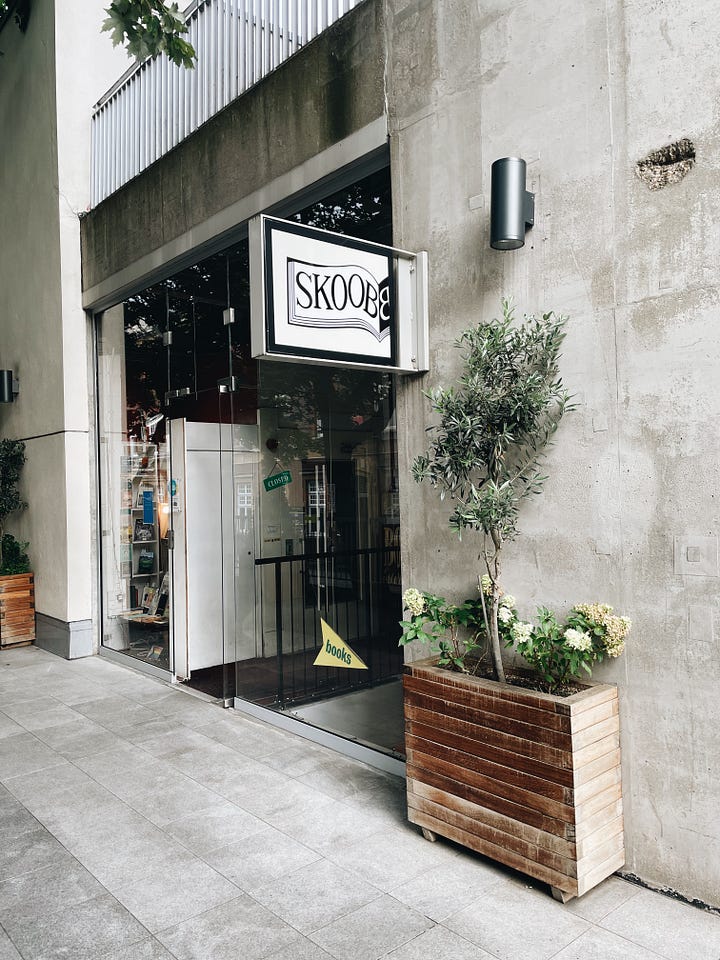
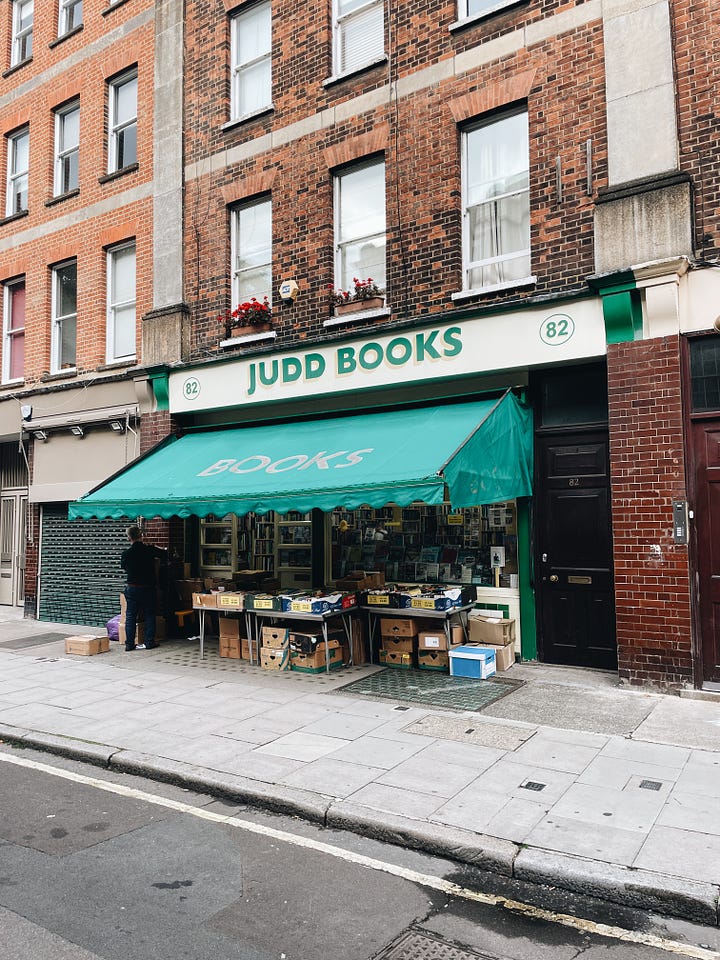
During my last trip, I found Ursula K. Le Guin’s two-volume short story set, The Unreal and the Real, at Judd Books for £3.95 each, or less than $10 total, half the price of new in the U.S. These are some deep cuts of Le Guin that you won’t find at most bookstores here. But then! I stomped down the street to Skoob Books and found the same two-volume set available there, too—on a shelf labeled with Le Guin’s name. I knew then that I was experiencing something of a first, for me anyway—a place where lots of people read.
And they read differently, too. Much of my down time was spent in bookstores, exploring titles that never make their way to the U.S. I’m on a text thread with friends from Book Club for the Planet and gleefully sent them shot after shot of my climate club research, books that were on central display in mainstream bookstores like Waterstones and Foyles.
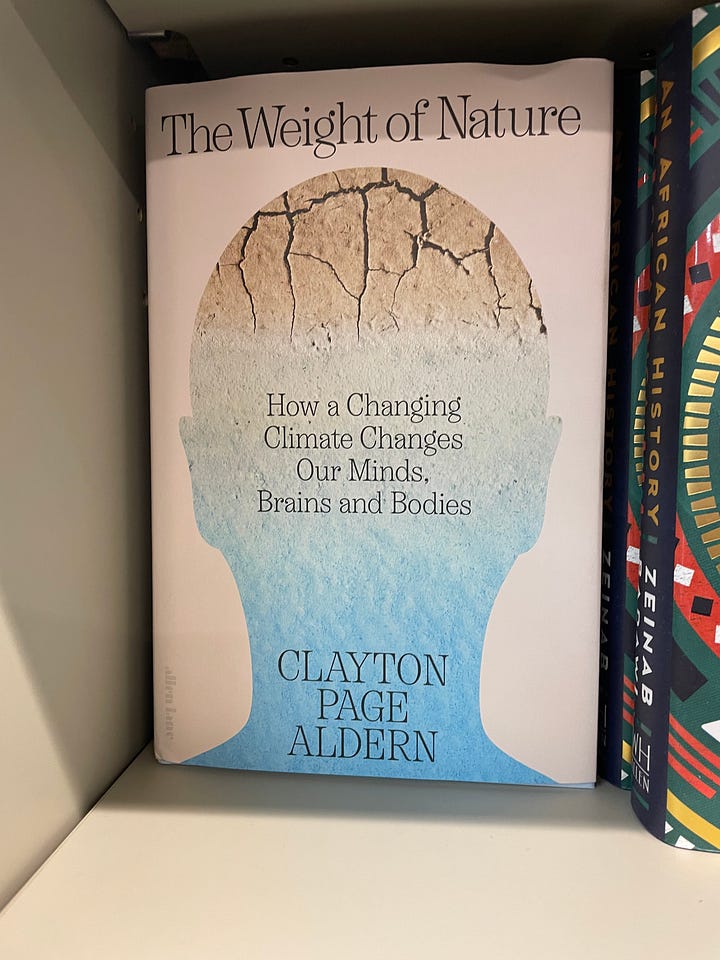
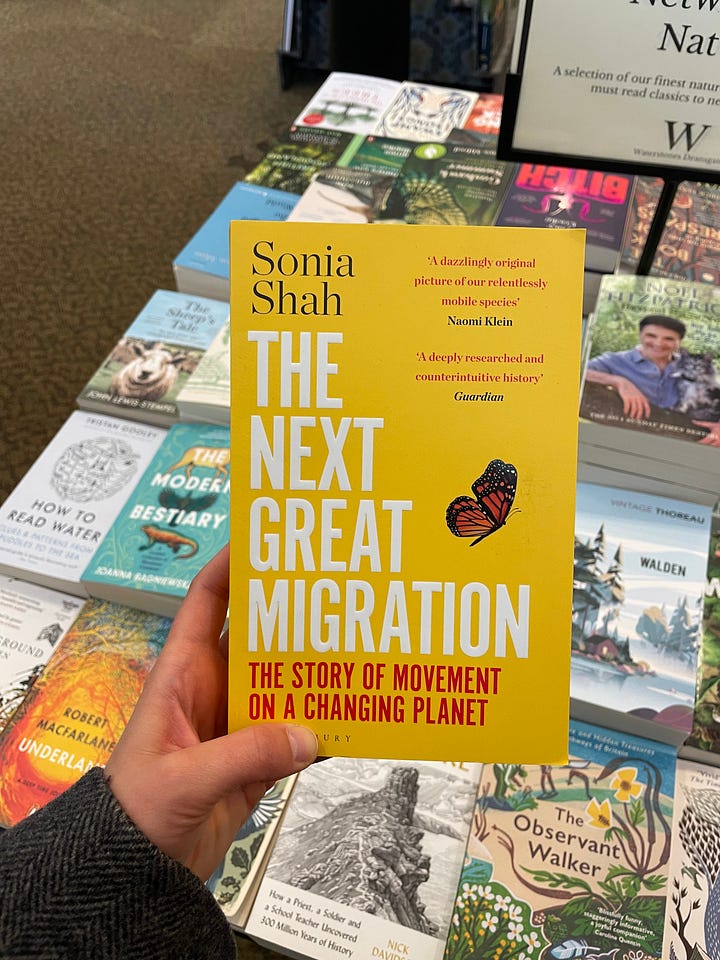
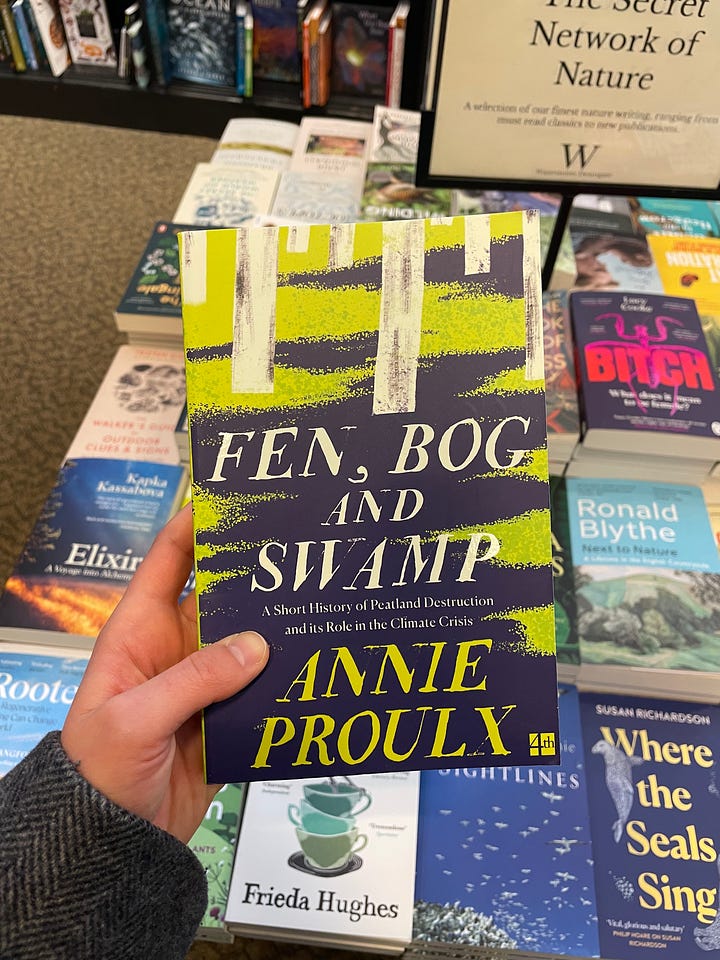
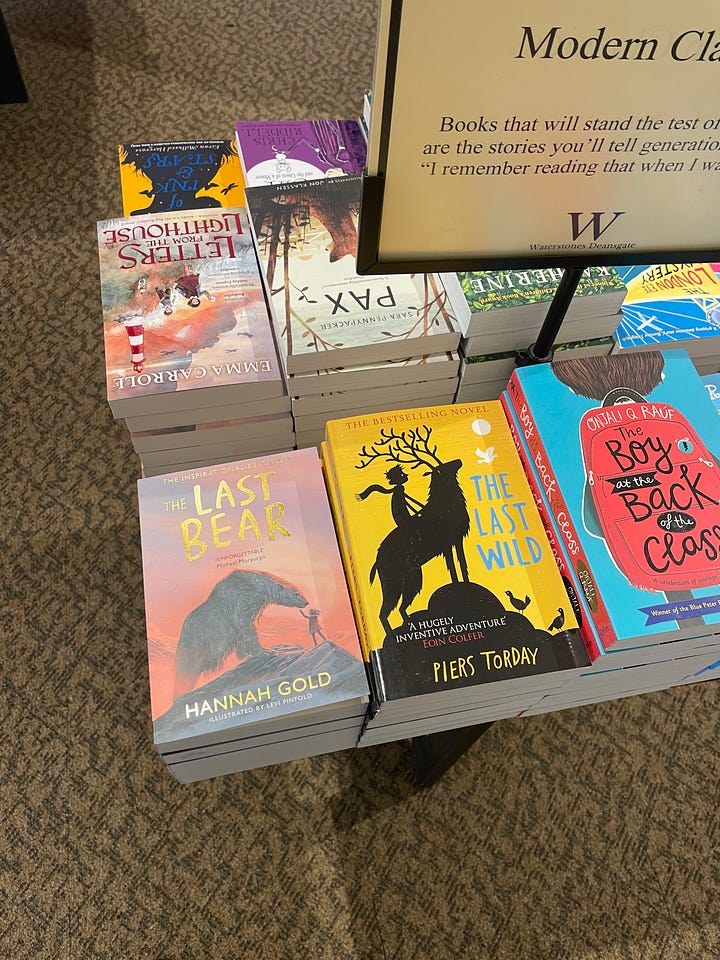
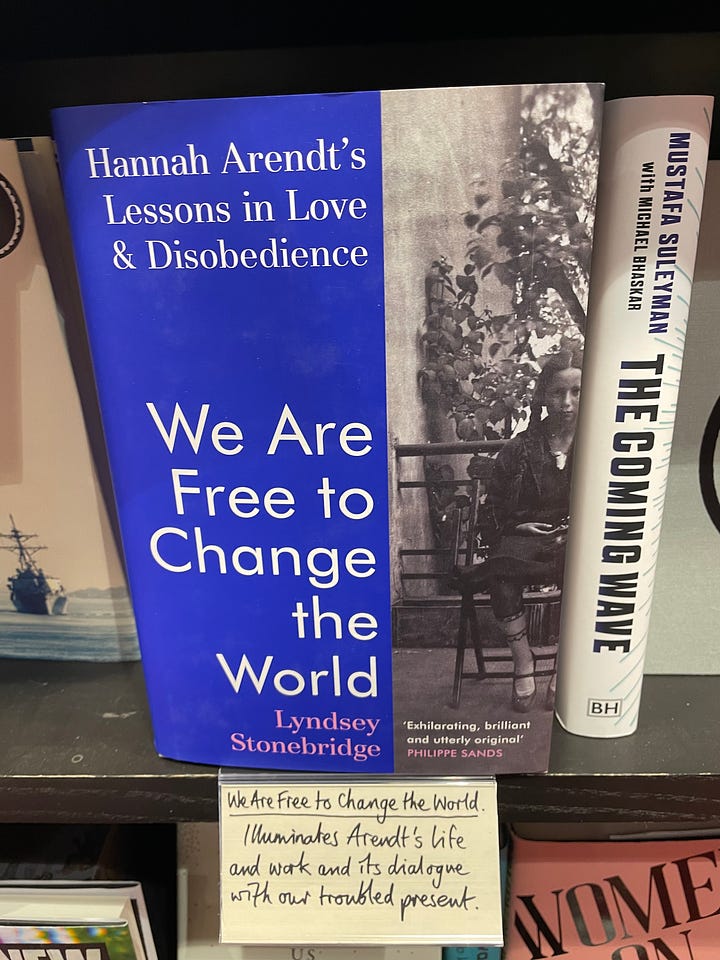
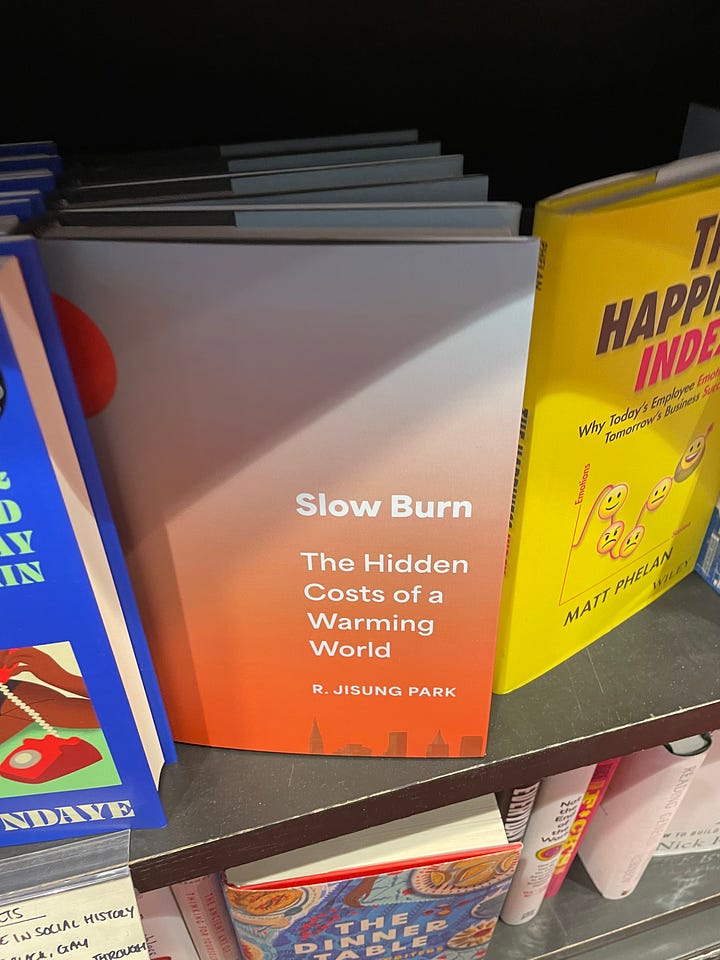
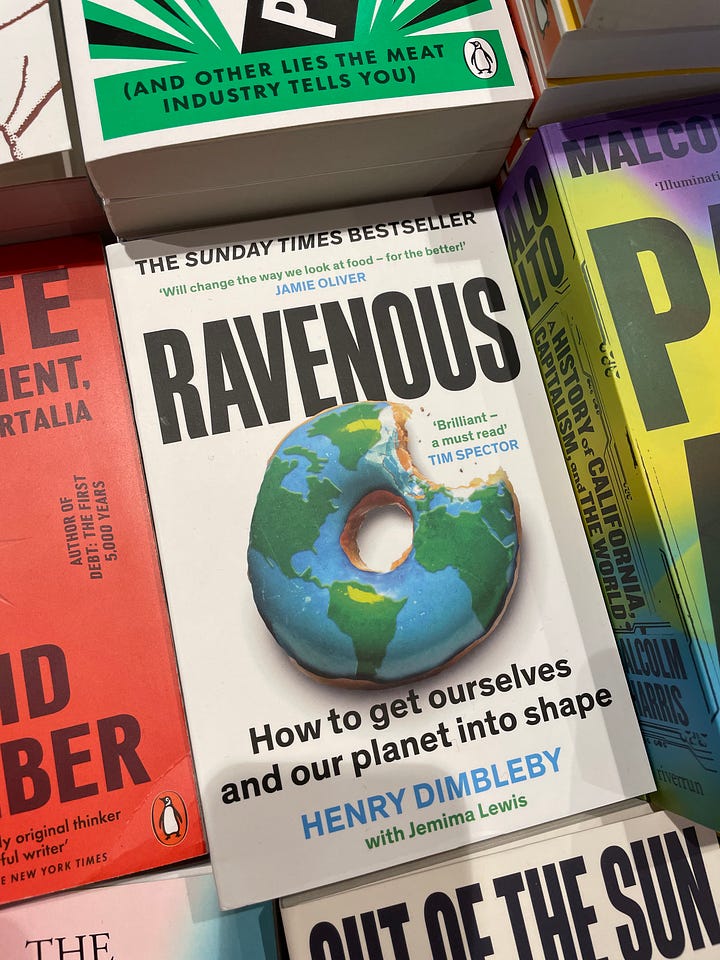
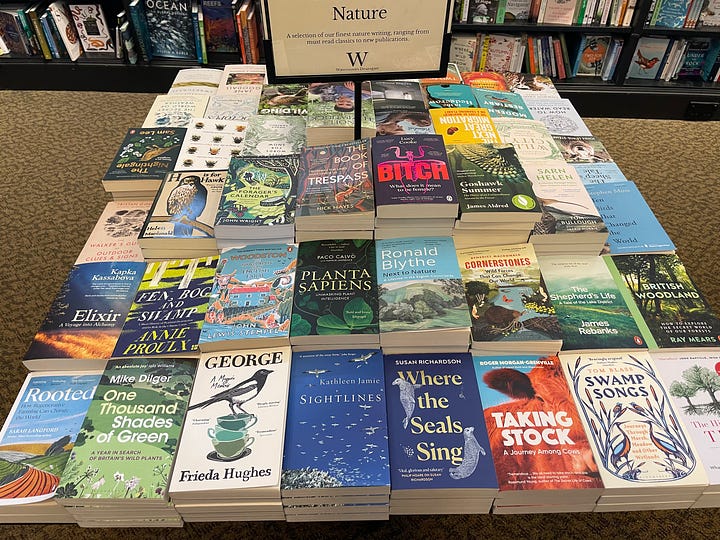
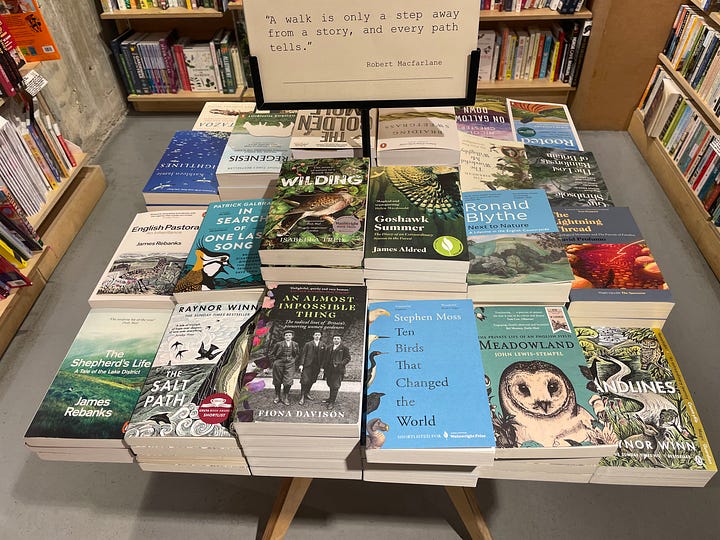
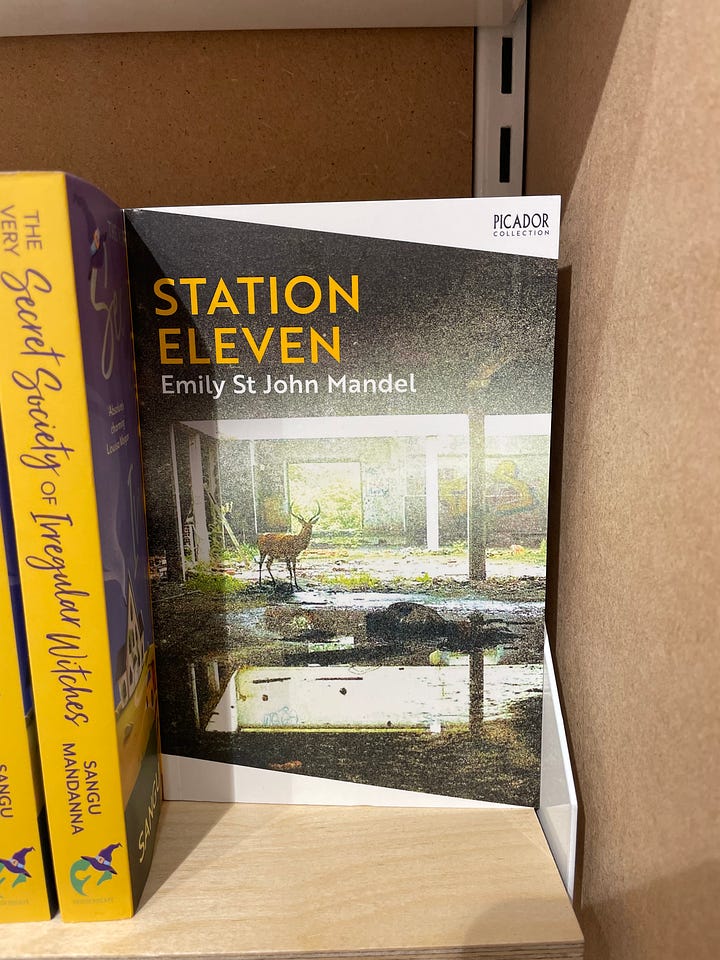
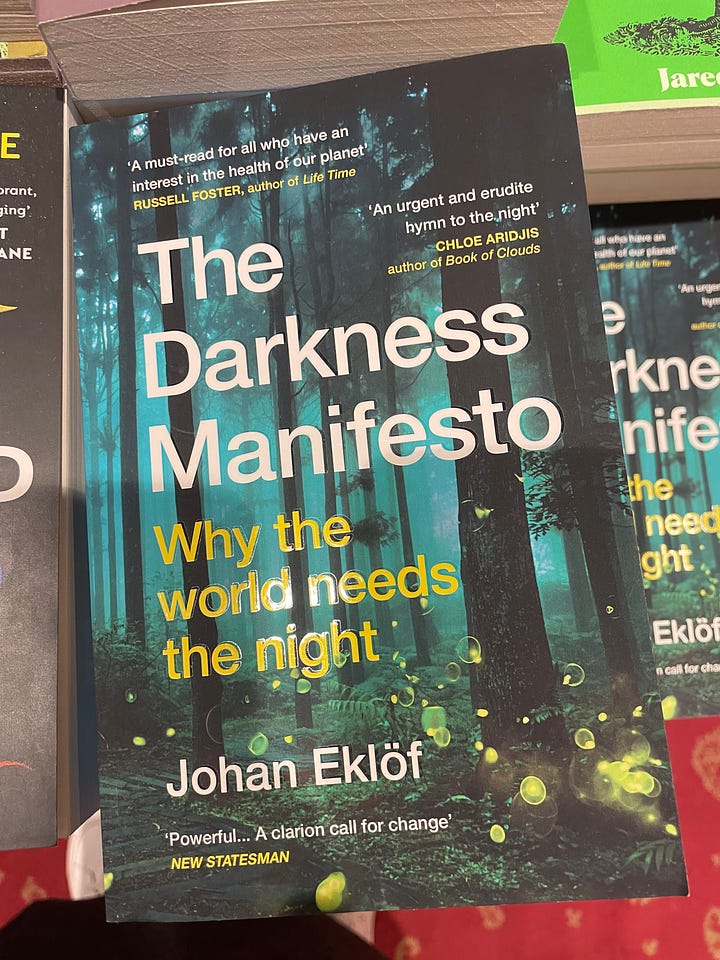
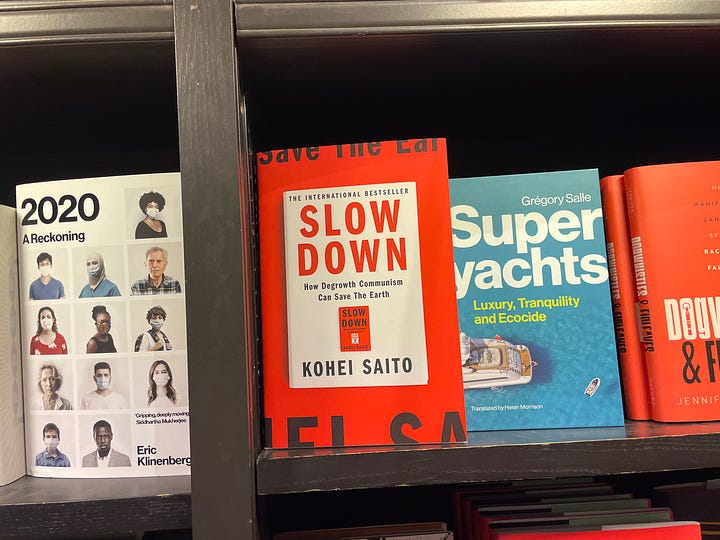
This display of climate and environmental literature is equal parts encouraging (thank goodness other people in the world are reading about this) and frustrating (because Americans, on a whole, don’t). But today, I’m choosing encouragement, grateful that I’m a short walk from our own local anarchist bookseller, Red Emma’s, where Kohei Saito, the author of our upcoming book club book, Slow Down, spoke this afternoon to a packed house.
The books I found
I brought home 16 books. (I need to read faster and buy another bookshelf.) Here they are.
How to Be Both by Ali Smith
Infinite Ground by Martin MacInnes
Gathering Evidence by Martin MacInnes
Enter Ghost by Isabella Hammad
Hag: Forgotten Folktales Retold (multiple authors)
Antarctica by Claire Keegan
Hagstone by Sinead Gleeson
O Caledonia by Elspeth Barker
The Peppered Moth by Margaret Drabble
Assembly by Natasha Brown
Delphi by Clare Pollard
The Ice Palace by Tarjei Vesaas
Unwell Women by Elinor Cleghorn
Poems 1962 - 2020 by Louise Gluck
Otherlands by Thomas Halliday
English Pastoral by James Rebanks
What I’m writing
I feel both stuck, not sure what area to focus on and write next, as well as deep in processing thoughts about cornerstone structural elements of the story that need to be decided before I can continue.
What I’m reading
White Heat by M. J. McGrath, The Familiar by Leigh Bardugo, Slow Down by Kohei Saito, O Caledonia by Elspeth Barker, and The Island of Missing Trees by Elif Shafak.
What I read
Finished a re-read of The Three-Body Problem by Cixin Liu.
A helpful thing
When you visit a new place, do a search for “bookstores” on Google Maps as a way to research neighborhoods and bookstores you want to check out. Save the spots you want to visit as “Want to go.” That’s how I find 90% of the bookstores I discover, but especially in London.





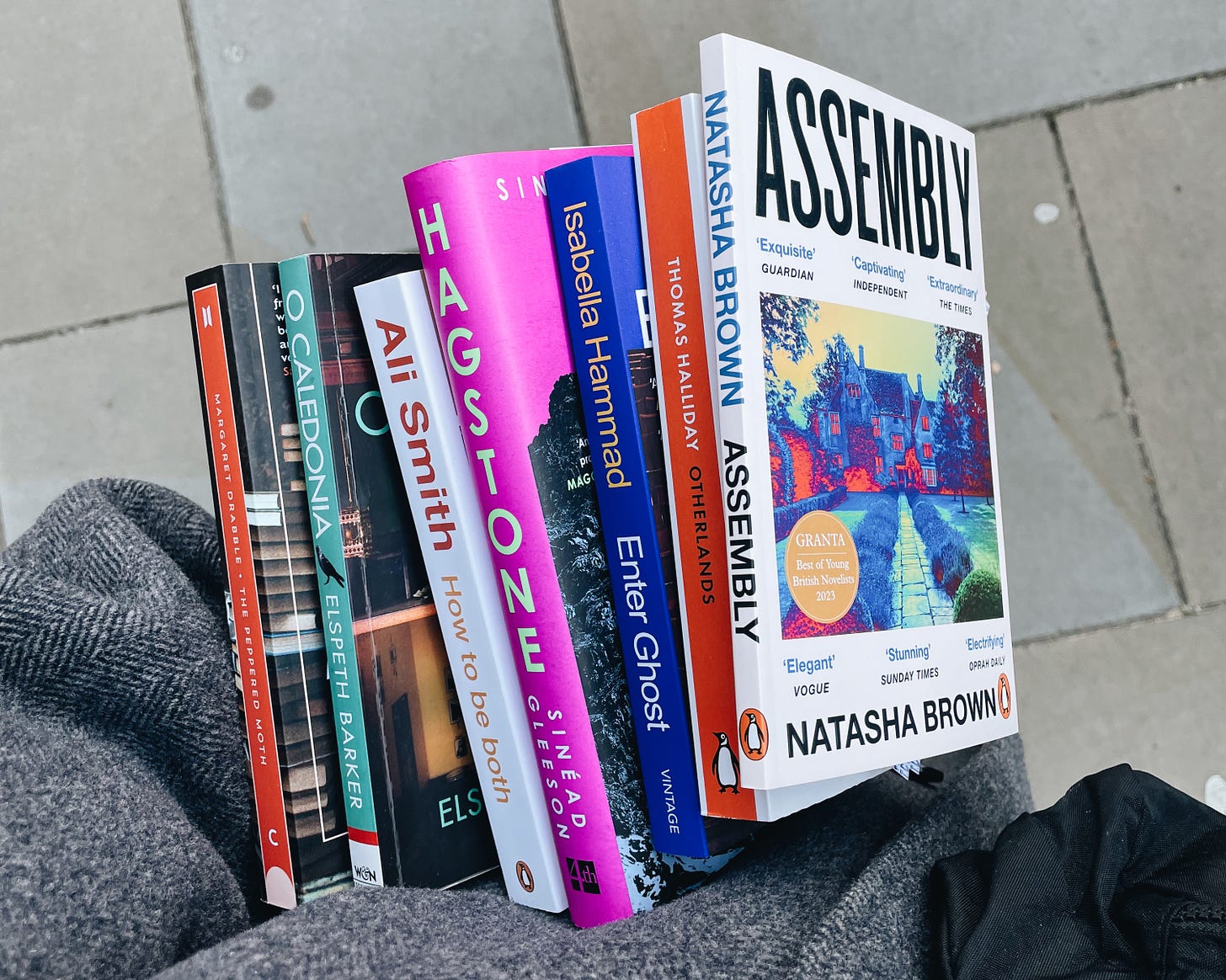
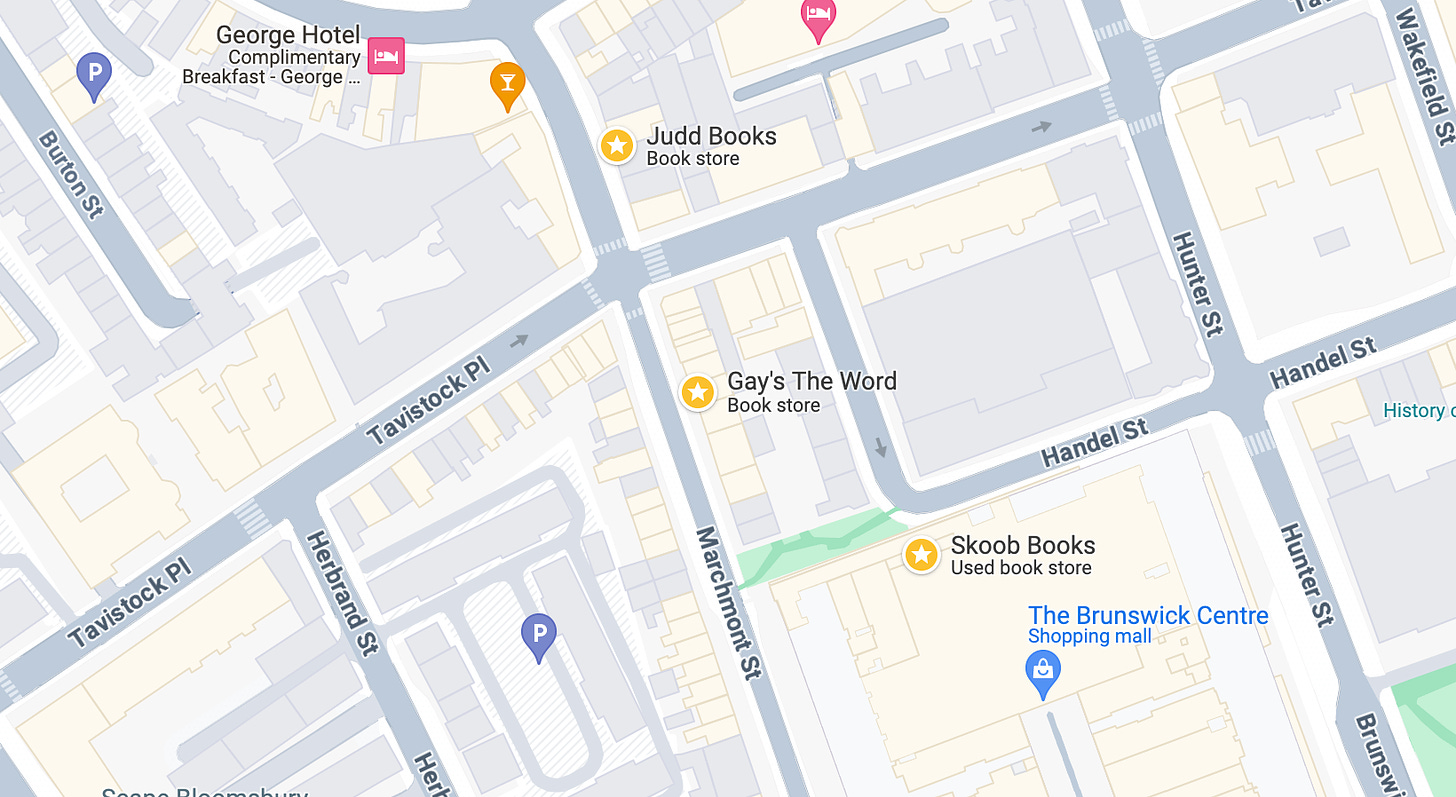
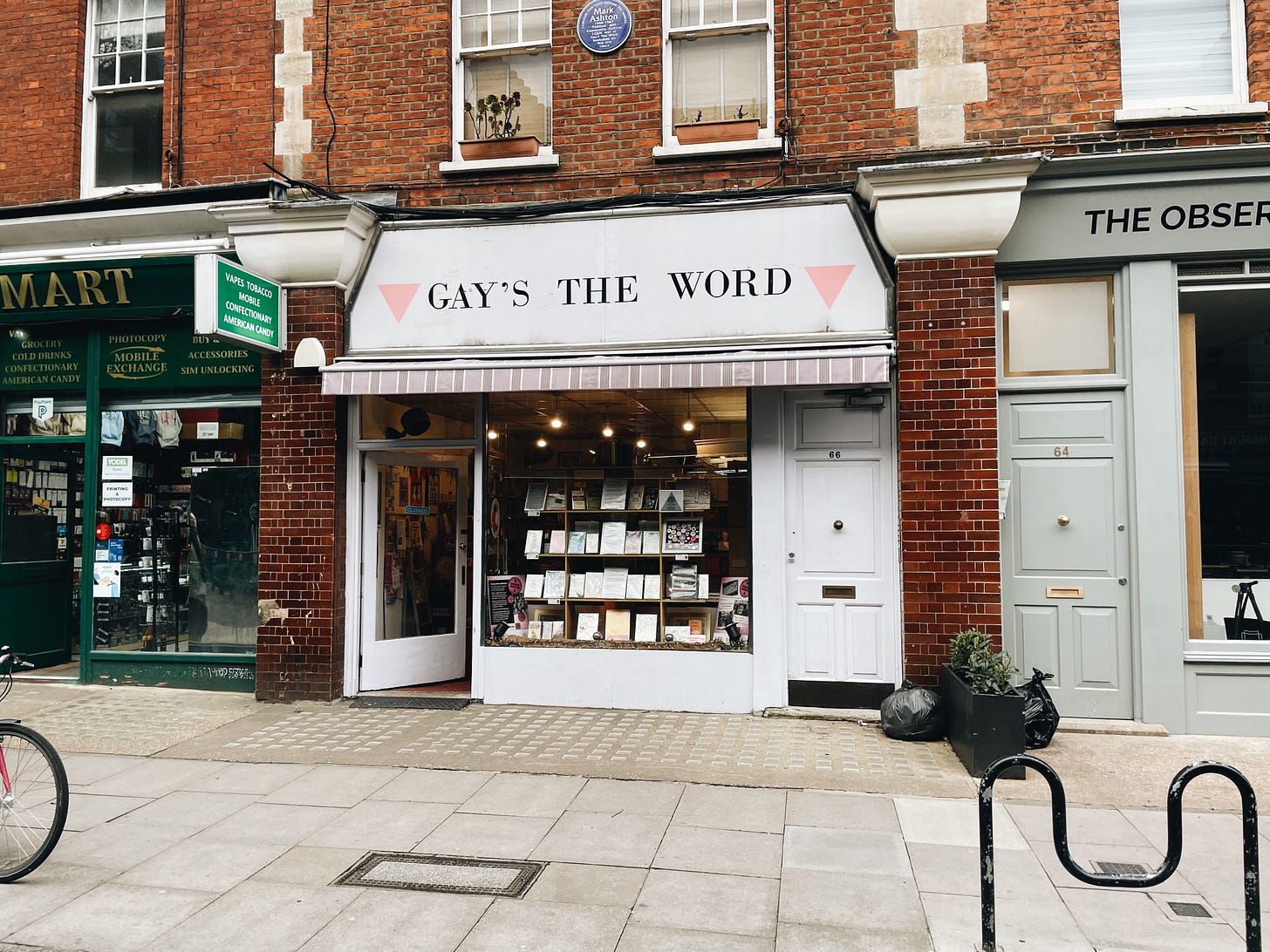
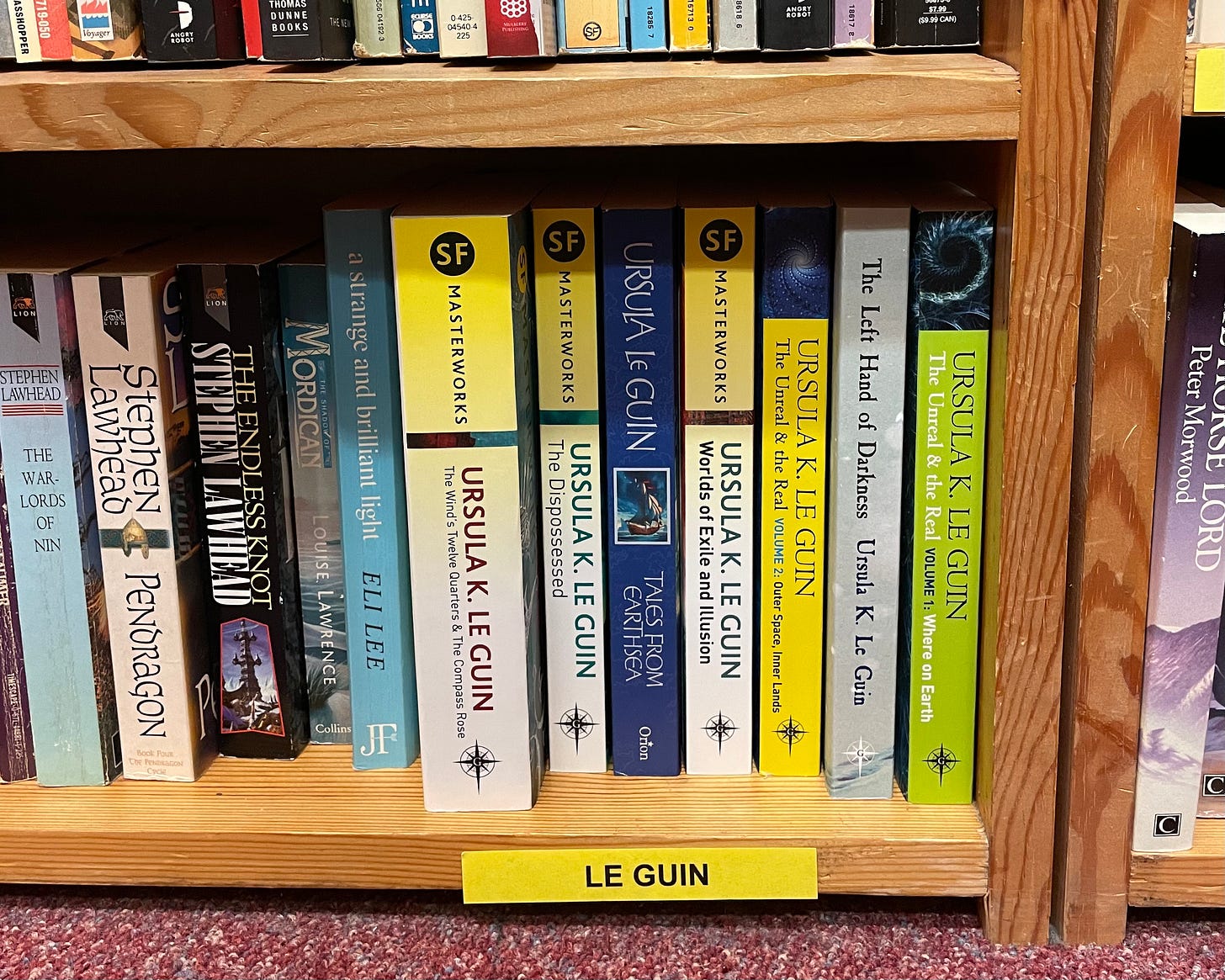
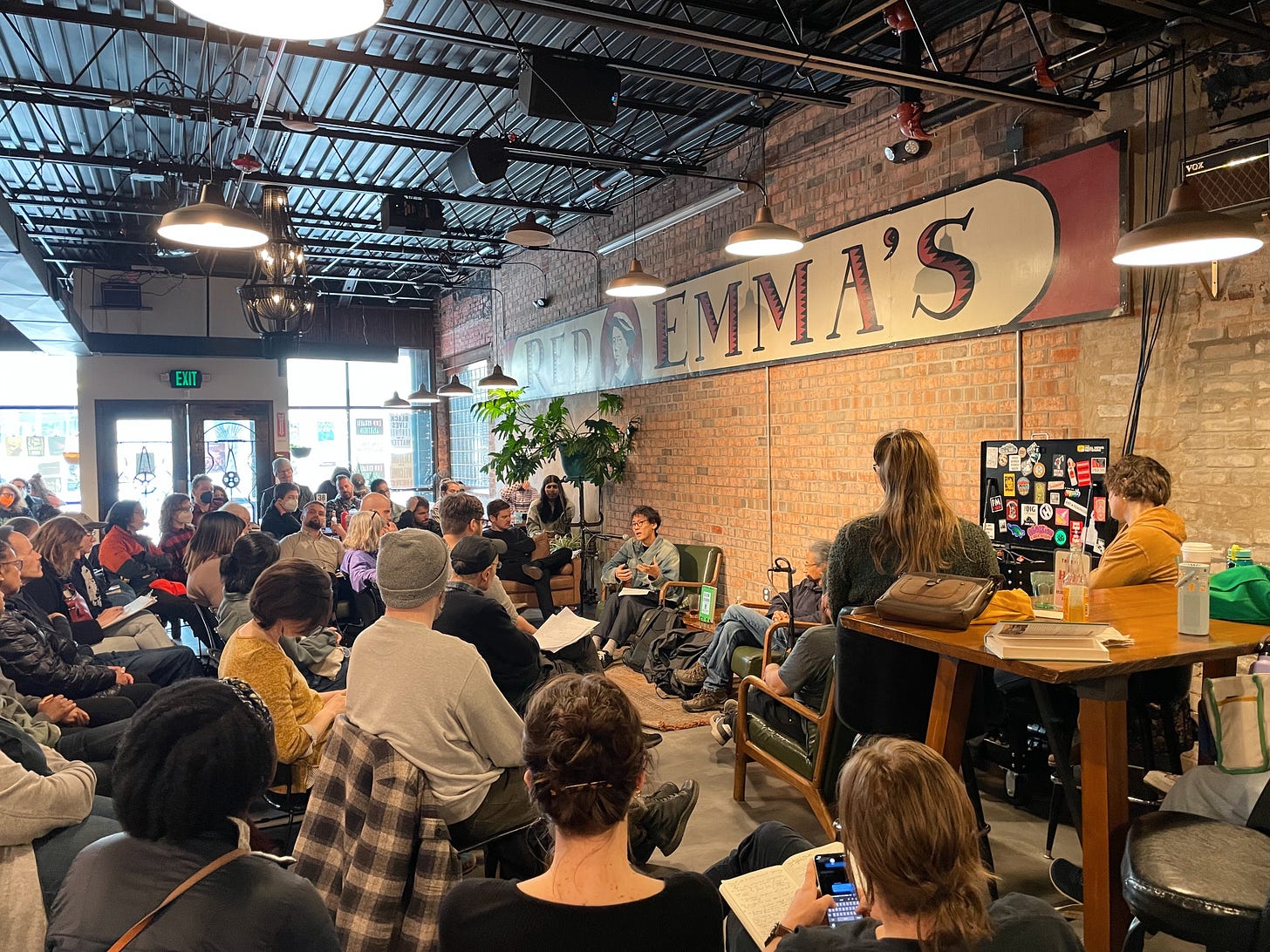
Fun fun fun! I’m also very curious about those pricing differences between the US and UK … it’s such a low margin business, what could account for that…?